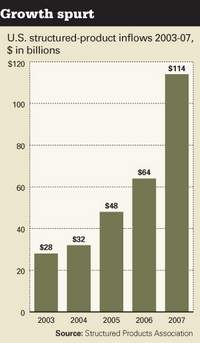An Exchange Traded Note (ETN) is a relatively new type of investment vehicle that is unfamiliar to many investors. Before you decide to invest, there are some basic questions which you should consider in order to make an informed investment decision.
What Is An Exchange-Traded Note? An Exchange Traded Note (ETN) is a common name for a senior unsecured debt obligation designed to track the total return of an underlying market index or other benchmark, minus investor fees. The creditworthiness of an ETN is itself not rated, but instead is based on the creditworthiness of the issuer.
Thus, the issuer’s credit rating is an important consideration for ETN investors. Typically, ETNs have a repurchase feature, providing qualified investors the election to redeem notes of at least a specified minimum denomination or value with the issuer on a daily or weekly basis at a predetermined price. The details of this feature are in the ETN prospectus. Individual investors, not qualified for redemption election, can purchase or sell their ETNs in the secondary market, sell at a specified issuer call event, or allow them to mature.
ETNs can offer investment exposure to market sectors and asset classes that may be difficult to achieve in a cost-effective way with other types of investments. ETNs can also act as an effective hedging tool.
An ETN allows individual investors to buy an obligation, similar to a forward contract, which is traded on an Exchange. ETNs may be linked to a wide variety of assets. Today there are many types of ETNs linked to indexes and/or single reference assets based on a variety of products such as commodity futures (e.g., energy, grains, industrial metals, livestock, and petroleum), foreign currencies (e.g., Euro, yen), and equities (grouped by such categories as industry sector, strategy or geographic location).
For the entire NYSE Informed Investor educational piece, click here.
Tuesday, August 19, 2008
Subscribe to:
Post Comments (Atom)




No comments:
Post a Comment